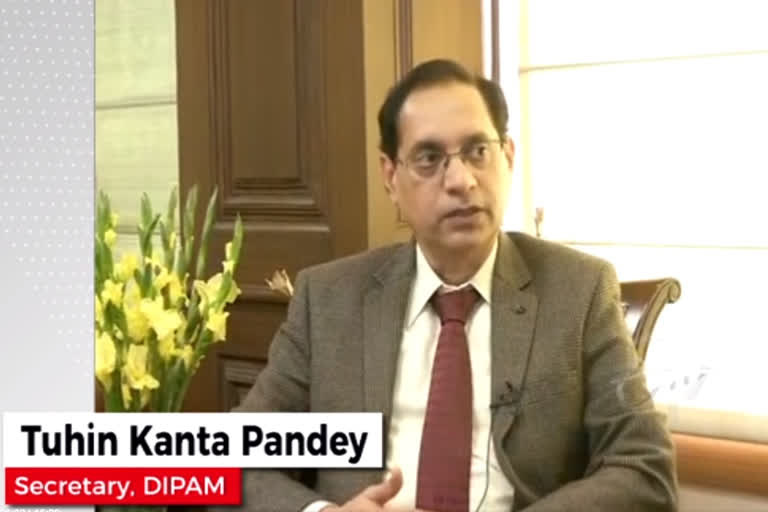New Delhi: The purpose of disinvestment is not to raise some financial resources for the government at a time of declining revenue but the idea is to get the government out of running the day-to-day business so that a dynamic industrial climate can be created in the country which will support growth and sustainable employment, said a senior officer in the ministry of finance.
While announcing the disinvestment target for the next fiscal, which has been estimated at Rs 1.75 lakh crore, which is just 5% of the total budgeted expenditure, finance minister Nirmala Sitharaman also announced that the government will reduce its ownership of public sector companies to bare minimum in the four strategic sectors identified by it.
It was a major change from the policy announced by the finance minister Nirmala Sitharaman last year under Atma Nirbhar Bharat campaign under which the government thought of retaining ownership of up to four public sector companies in strategic sectors like defence and atomic energy, telecom, energy, and financial services including banking and insurance.
However, the announcement of the government’s intent in the budget made it clear the strategic decision taken by Prime Minister Modi’s government to privatize most of the public sector companies.
In an exclusive interaction with ETV Bharat, Tuhin Kanta Pandey, secretary in the department of investment and public asset management, said the exact purpose of the disinvestment is to create a dynamic industrial climate in the country by shedding the government’s ownership of companies, which will lead to creation of a more competitive economy, and more sustainable jobs in private sector.
In response to a question by ETV Bharat about the opposition the government will face from the trade unions and employee unions as they apprehend that privatization will lead to loss of jobs, the top officer in the department said creation of more sustainable jobs in a private sector driven competitive economy was the precise purpose of disinvestment.
“That is exactly the purpose of the disinvestment. In fact, the purpose of disinvestment should not be that we just want to raise some fiscal resources,” Pandey told ETV Bharat.
Citing the disinvestment target for the next fiscal, which is just 5% of the total budgeted expenditure of the Centre, Pandey said the actual purpose of disinvestment goes much beyond just raising some resources by diluting government’s stake in public sector companies.
“Actually, the purpose of disinvestment is much beyond. It is to continue with growth and sustainable employment,” he said.
Pandey said it was a fast-changing world which requires a kind of business leadership which takes quick decisions, addresses the market needs and raises funds on a continuous basis.
“The government’s role as a catalyst, it cannot be bogged down by getting into day-to-day business of running companies,” observed the top officer.
Referring to the case of ailing national carrier Air India, which is making losses and bleeding the government finances, the officer said these were the businesses that are required to be done by following the market rules.
“Markets change, and they have to change accordingly so that it is in the interest of the employees and everyone else that they are part of the employment eco system which is sustainable,” Pandey told ETV Bharat.
‘India is a private sector driven economy’
Defending the government’s privatization drive, the top officer, who has been tasked with rationalizing the extent and structure of the government’s ownership of companies, says India is already a largely private sector drive economy.
He said the share of the public sector has already shrunk quite sharply and much of the services are provided by the private sector, including food sufficiency as farming was also privately managed activity.
“All the farmers are private, the food is privately produced, it is privately processed. Much of the services we presently enjoy, much of them are privately provided,” DIPAM Secretary said.
Pandey said the bulk of employment was already in the private sector.
“When you say protecting employment, then it is precise to say protecting sustainable employment. We need to move towards a more competitive economy,” said the officer.
(Article by Krishnanand Tripathi)



